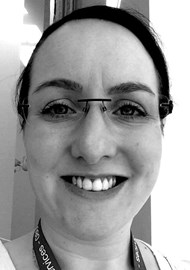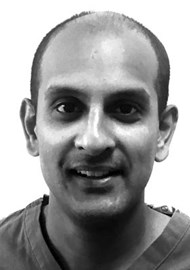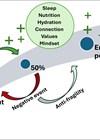There are many reasons for a clinician to take time away from clinical practice. These include parental leave, research, a period of ill health, a career break, or the opportunity to spend time pursuing other interests. At any one time, approximately 10% of the 50,000 doctors in England in postgraduate training are taking time out [1].
The time away may be relatively short or can span a period of years. Regardless of the reason or duration, it is inevitable that the clinician will need a period of support when returning to the workplace to facilitate their transition back to clinical practice. It may also be the case that the clinician’s personal circumstances and abilities have changed, and this may impact their day-to-day life and require adjustments of their working pattern. In this article we aim to summarise the potential challenges faced by returning clinicians and provide some insight into how these may be mitigated.
Changes after a period of time out
A period of time away from clinical practice can come with many advantages. It can provide an opportunity to re-energise and gain new skills and achievements that benefit a clinician’s practice. It can provide the time needed to focus on a commitment, skill or academia without needing to compromise time with a busy clinical job. For others who have had enforced time away due to either illness or caring responsibilities, there is the risk of deskilling and the potential to have fallen behind with professional development, knowledge, surgical innovations and service improvements. It is important to acknowledge that circumstances can vary greatly between individuals who are looking to return to work from an extended period away from the workplace. Therefore, support must be fluid enough to be tailored to meet the needs of the individual rather than following a prescriptive general protocol.
In certain situations, skills gained while away from work altogether, such as the time management, patience, communication and negotiating skills gained from raising young children or taking on caring responsibilities, can be invaluable. It may provide an insight into the commitments that other colleagues and patients face that will be beneficial to those relationships.
For some who have taken time out, life may have changed completely. Some may find themselves with new caring responsibilities for family or children, they may be breastfeeding or having sleepless nights. The Academy of Medical Royal Colleges (2016) survey of returners from parental leave found that 67.5% of those responding had no family support, 51.8% were getting less than five hours of continuous sleep per night and 77.4% had no opportunity to refresh clinical skills [2]. Those that have had a period of time out due to ill health may have lasting physical or psychological limitations which may have a significant impact on their ability to function at work in their previous role. This needs to be recognised and reasonable adjustments made in terms of the sessions undertaken and hours worked.
Likewise, those who have spent time out due to research or academic interests may experience a crossover of commitments and still be spending a significant amount of time working on their thesis. Some may be returning with a new working pattern such as working less than full time, which may help balance both clinical and non-clinical commitments but comes with its own new unforeseen challenges.
The loss of surgical skills associated with their time away from work is a well-recognised phenomenon, with the ability to perform a task decreasing after a period of between six and eighteen months [3]. This is often combined with a loss of confidence in clinical abilities and decision making. Dependent on the duration of time out of practice, there may be a knowledge deficit with regards to changes in procedure, practice or guidelines that requires adequate time for the individual to address through professional development processes. For trainees who are continually trying to acquire new skills and achieve new levels of competence, many will be trying to regain their previous level of competence whilst also progressing along the training timeline. This can be a cause of significant stress and should be acknowledged by their educational supervisors and allowances made in outcomes of educational reviews and progress reports. For those returning to the same department, the team may have expectations based on previous experience that do not reflect the reality of the returning clinician which will lead to unnecessary stress for all when expectations aren’t initially met.
For those working in new departments, it can be a challenge to integrate with new protocols and new staff whilst trying to re-establish their clinical ability and identity. With the current culture of ‘presenteeism’ in medicine, and the continued trend for outside of working hours opportunities, such as meetings, emergency cases, and work-related social events, this can be particularly challenging to handle. Some may feel there is a stigma attached to being the one that needs to leave on time and feel unable to talk about the stress this can cause.
Supporting return to practice
With all the above in mind, there are several steps that can be taken to mitigate some of the challenges facing those returning to clinical practice. One key aspect is advanced planning; identifying potential areas of concern early and putting plans in place for the period of return to address these, will lead to a more successful and efficient return to work. Clearly for some, such as those taking time out for ill health, this will not be possible. However, formalised meetings to discuss the details of a graduated phased return before restarting should be part of a trust’s long-term absence pathway.
For trainees, the Joint Committee of Surgical Training (JCST) have published guidance on the frequency of meetings for those returning with their educational supervisors and / or training programme director [4]. They suggest, if possible, a meeting at some point prior to time away, between six weeks and three months prior to the planned return and six to eight weeks after an initial return period. For consultants, meeting with their clinical director, line manager and human resources department prior to time away and prior to return may help to plan in advance additional support that will be required on return. It is important to be realistic in these meetings about how the period of absence has impacted you or how life may have changed for you and what you will need in place in order to enable you to continue effectively in your role.
During planned time away from clinical practice, there are various resources available to help keep up to date with clinical knowledge and any new changes. Journals, social media, webinars, conferences and courses can all help, and in the advent of the COVID-19 pandemic a lot of resources are now online, which makes this more flexible and accessible for those not able to attend events face to face or in a specific timeframe. BAUS have organised a series of webinars that are available to view via the website, including many excellent lectures from this year’s online annual conference. Other organisations including the Royal College of Surgeons and the Royal Society of Medicine have organised online events and lectures. It may also be necessary to continue to log in to various accounts during time away to keep them active, including NHS email addresses. Setting a recurring reminder on a digital calendar can help with this.
For those on parental leave, keeping in touch days can be planned to address areas of potential concern. Some may choose to use these to shadow a colleague on call, attend theatre lists to regain some confidence prior to return or sit in multidisciplinary team meetings to ensure practice is up to date. Equally, they could be used for departmental meetings or regional teaching, and for some this can help to reduce the isolation from colleagues that can accompany a period away from work. Courses, including cadaveric or simulation courses, are available and can provide the opportunity to practise technical skills in a low stress environment, as well as spending time reintegrating with colleagues.
On return to clinical practice, try to ensure that there is optimal support for all areas of your working life. Within the working environment, avoid taking on any new commitments such as exams, new research or new roles until back up to speed. Review clinic templates and ensure these are appropriate to allow time to readjust, which may require a temporary reduction in numbers. Consider doubling up or having an (informal) ‘phone a friend’ arrangement for on calls. Theatre lists should be planned in advance to ensure appropriate caseload and sufficient time for each case. For trainees, an initial period where lists comprise mainly core cases may be helpful regardless of stage of training to reacclimatise prior to moving on to more specialist areas, with senior supervision even for cases that previously were performed independently. For consultants, dual operating lists and ring fencing of some lists as non-training lists may be needed until technical skills are re-established and confidence is regained. For those with young children, ensure you have robust childcare with back ups in case of an emergency.
A network of others who can provide both formal and informal advice and support is essential. For those returning from illness the ongoing support of the occupational health team is essential. Others who have been through similar periods of return, such as other clinicians who have become parents or carers during clinical practice, and academic trainees who have completed research time away, can provide much needed advice. Trusts will have less than full-time champions who can assist with those choosing this route. For trainees, Health Education England’s Supported Return to Training (SuppoRRT) programme has been designed to assist those returning to clinical practice [1]. This programme is accessed via the deanery and provides a number of different areas of support including a period of enhanced supervision on return, funding for additional courses and mentoring and coaching (see top tips box). SuppoRRT champions are in place in each deanery to assist trainees with the process.
Conclusion
Taking time out of clinical practice can be many things; essential, stressful, painful, invaluable, rewarding and enjoyable. What is certain is that the person returning to work will find themselves in a different situation to the one they were in when they left. Time away from work is not ‘time off’. It will not have been a holiday and you are likely to be returning at a time when you are still managing the ongoing changes in your private life. Inappropriate attitudes and behaviours toward the returnee should not be tolerated. All returning clinicians should be appropriately supported to create a positive working environment and to make the most of the experience and many skills they bring back with them into the workplace. We hope in this article we have provided some insight into both the difficulties that can be faced, and how these can be addressed to support colleagues returning to the workplace.
Top tips
Support available
- Trust less than full time champion.
- SuppoRRT champion and deanery website.
- BAUS Return to Work project and podcast (available via the BAUS website).
- UroParents WhatsApp group (contact Sophia Cashman to access)
- Social media including the UroParents Facebook group.
SuppoRRT programme [1]
- A period of enhanced supervision on return.
- Refresher courses and simulation training.
- Mentoring and coaching.
- Conferences and training.
- Funding for courses or development.
Consultant advice
- Advanced discussions with clinical director prior to leaving and return.
- Avoid being on call straight away and have phone a friend.
- Double up theatre lists with no trainee initially.
- Write handover to yourself.
- Review clinic templates and alter if needed.
Personal reflection – planned sick leave
By Saiful Miah, consultant urologist
In 2015, I had a career-changing incident at the BAUS conference (football tournament) where I snapped my left anterior cruciate ligament. This event crushed my boyhood dream of becoming a professional footballer with the added realisation that reliance on urology was now my remaining choice of career. I now had another issue to deal with, namely how to address this injury and balance this with my surgical training.
Undergoing elective surgery fortunately permits pre-planning your sick leave, however, as I found out, there are numerous factors that I did not appreciate or account for until faced with the specific scenario.
There is never an ‘ideal time’ to undergo elective surgery during your training period. Of course, your health and wellbeing should be your primary priority and not your training requirements. However, this is harder said than done. Informing medical staffing, your educational supervisor and training programme director as early as possible is an important first step of the process. I was reliably informed that my surgery would require six weeks of sick leave and at first, I naively thought this was excessive. Retrospectively I can say that this was the wrong mindset.
Your sick leave (and physiotherapy rehabilitation in my case) is the main priority. The temptation to start dabbling in work-related issues, research, audit, conferences, etc. will be great but should be avoided to allow a holistic recovery from surgery. Personally, I had planned to present some research at a conference less than a week into my surgery; however, on day two postop I realised this was wholly inappropriate, mainly due to my lack of mobility and the pain that I was in.
On your return to work, re-engaging with medical staffing, your educational supervisor and training programme director is essential. Factors that I did not consider to be issues included the need to drive during on-calls (I was fortunate enough to have a strong network of social support for this locally) and the sheer volume of steps you potentially cover during on-call (I measured an average step count of 15,000 during my last stint as a registrar on-call). Standing several hours for major cases also proved to be a challenge at first and again you must resist the temptation of prioritising training over your health. Whilst in theatre I had to make several small changes including having both diathermy pedals on my right foot only. Follow-up and physiotherapy appointments played a crucial part of my rehabilitation. Your department should appreciate that NHS appointments do not always provide six weeks notice for such encounters and you may need to attend at short notice.
In summary, my sick leave and return to work was without a doubt a tough period during my training. Most importantly it provided me with insight and a greater appreciation and respect for those who face major illness or surgery during their clinical training.
References
1. Health Education England. Supported Return to Training [Online]
http://www.hee.nhs.uk/our-work/
supporting-doctors-returning-training-after-time-out
2. Academy of Medical Royal Colleges. Maternity/Paternity Survey Results. 2016.
www.aomrc.org.uk/wp-content/
uploads/2016/06/Maternity
_paternity_survey_200416-1.pdf
3. General Medical Council. Skills fade: A review of the evidence full report.
https://www.gmc-uk.org/-/media/
gmc-site-images/about/skills-fade
-literature-review-full-report.pdf?la=
en&hash=8E0E20E07337E2344A
5467F9B302C2D83CF2EBA5
4. Joint Committee on Surgical Training. Return to work guidance. 2016.
https://www.jcst.org/key-documents
(All links last accessed August 2021)
Declaration of competing interests: None declared.














